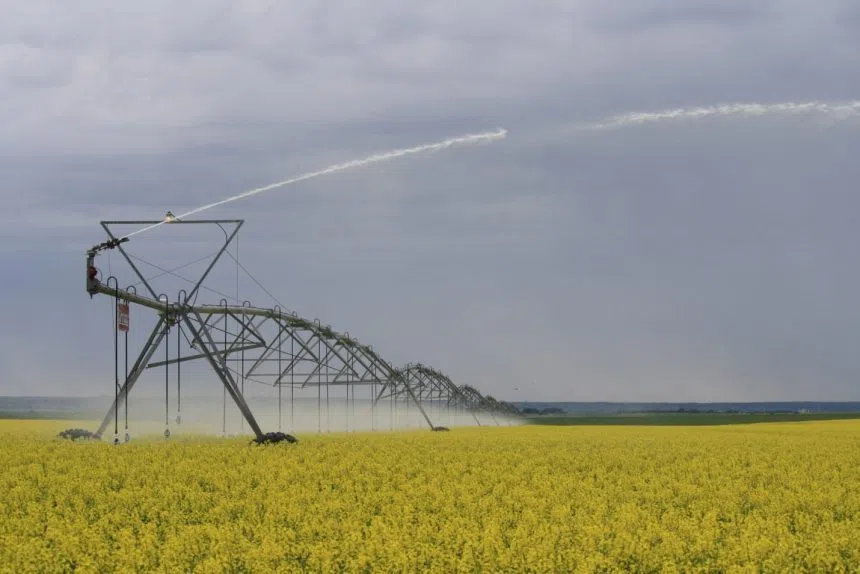This story was first published on RealAgriculture.com on July 31, 2025.
The Canola Council of Canada (CCC) has let go of its field-based agronomy team as it implements a new five-year strategic framework.
Multiple sources say the council’s agronomy specialists were informed they had been terminated, effective immediately, on July 30.
For the last number of years, the council employed around eight agronomy specialists, each covering their own region of the Canadian Prairies while providing expert advice and support to canola growers and agronomists on different aspects of canola production.
Read more:
- Crop conditions improving in Saskatchewan, but more rain needed
- Australia opens to Canadian beef for first time since 2003
- Battery operated grain auger introduced at Ag in Motion
New plan identifies three priorities
The new five-year plan, dubbed Canola Forward: A Strategic Framework for 2025 – 2030, was unveiled on July 31. It focuses on three core priorities, according to the council: a sustainable and reliable supply, stable markets for value optimization, and member service excellence.
“We’ve developed this refreshed framework in collaboration and with input from our board, from the broader membership, and stakeholders from across the value chain,” says Chris Davison, president and CEO of the CCC.
“We see this as an evolution, but we’ve also been asked to really sharpen the council’s focus in terms of what members and others have told us are of critical importance for the industry in terms of moving forward in the future.”
He says it became clear while developing the new framework that the council’s agronomic role needed to be “re-focused” to work on identifying and addressing threats, production risks, and opportunities for Canadian canola, referring to the changes as a “re-allocation.”
“What we heard is that we should be allocating the resources that are made available where members and others believe it’s going to have the greatest impact, and quite frankly, that’s the biggest driver,” says Davison.
“I think it reflects an evolution of the industry and a maturity of the industry.”
Farmer communications being reviewed
Davison says the council will be reviewing its agronomic communications with farmers, noting they plan to continue to publish Canola Digest magazine, which is also funded by the provincial canola grower organizations — Alberta Canola, Sask Oilseeds, and Manitoba Canola Growers.
“We’ve been fortunate through the work of the team we’ve had in place to develop a large library of agronomic resources. That’s not going anywhere,” he says.
“That will continue to be in place, and we will continue to make additions to that, and that will be available to a range of stakeholders to access and deploy.”
In addition to the agronomy specialists, he says several personnel who supported the agronomy team are also affected by the staffing changes.
Davison isn’t saying whether the new framework includes cuts to the council’s overall budget, but acknowledged the council has revised its membership fee structure.
“We will report on that through things like our annual report, our financial statements, and audits as well,” he says.
In 2024, the CCC reported core revenue collected from its members of $4.86 million, down from $5.36 million in 2023.
Provincial grower groups, which are funded by farmer check-offs, contributed around $2.3 million (~48 per cent) to the council last year. Grain companies and processors provided $1.8 million (~37.5 per cent), and life science companies added just over $684 thousand (~14.1 per cent) in core funding.
The operating cost for the agronomy specialist team in 2024 was reported at $342,000, down from $402,000 in 2023.
Agronomy budget under internal pressure
The Canola Council’s agronomy budget has been under internal pressure for many years.
For example, in 2018, the council reduced its overall budget by 25 to 30 per cent, with producer organizations taking on a greater share of the funding, as certain grain company members cut their funding and called for a reduced focus on agronomy.
Richardson International — one of Canada’s largest grain companies — withdrew from the organization around the same time.
Bunge’s acquisition of Viterra earlier this month also reduced the list of grain company members helping fund the council.
Listen to RealAg on the Weekend, Saturdays at 4 p.m. and Sundays at 1 p.m. on 650 CKOM and 980 CJME.
Read more:











